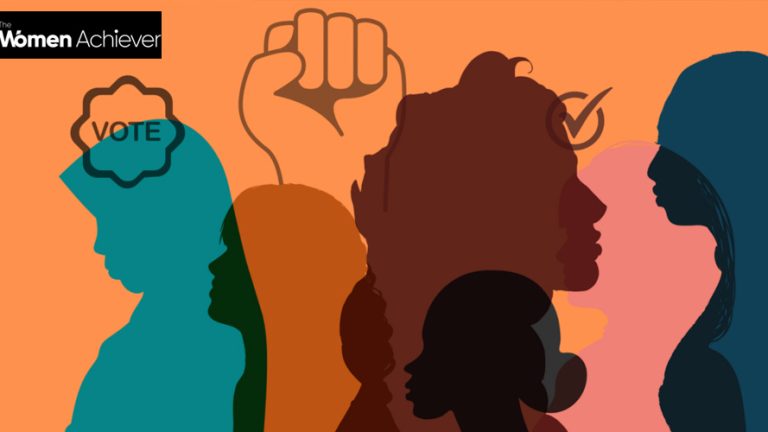Learn about their achievements, challenges, and the transformative impact of female leaders in local governance.
Women’s participation in politics is a critical measure of gender equality and empowerment. In India, rural districts such as Dindigul and Theni in Tamil Nadu provide a unique lens to study the challenges and achievements of women in politics. These districts, known for their cultural richness and agricultural backbone, have seen significant strides in women’s political involvement, offering insights into how grassroots movements and policy initiatives can drive change.
Background of Political Representation in Tamil Nadu
Tamil Nadu has a history of progressive measures to encourage women’s participation in governance. The 1993 Constitutional amendment mandating 33% reservation for women in local bodies marked a turning point, enabling women to step into leadership roles in rural and urban areas. Dindigul and Theni districts exemplify how such policies can transform local governance.
Women in Local Governance
Dindigul and Theni districts have embraced women-centric policies, resulting in significant female representation in Panchayati Raj Institutions (PRIs). These women leaders play vital roles in decision-making, addressing issues such as education, sanitation, and healthcare.
Dindigul District
Dindigul district, with its 306 panchayats and 14 blocks, has seen increased female participation in governance. Over 40% of elected representatives in local bodies are women. These women often focus on issues like access to clean drinking water, improving school infrastructure, and implementing welfare schemes.
Theni District
Theni, a smaller district with six blocks and 130 panchayats, also reflects a rising trend of women in politics. Women leaders in Theni have been at the forefront of addressing farmer grievances, advocating for better irrigation facilities, and ensuring timely implementation of rural development projects.
Key Drivers of Women’s Political Participation
1. Reservation Policies
The reservation of one-third of seats for women in PRIs has been instrumental in bringing women into governance. In Dindigul and Theni, this policy has ensured a steady flow of women candidates contesting and winning elections at the local level.
2. Grassroots Movements
Self-help groups (SHGs) and women’s collectives in these districts have empowered women economically and socially, paving the way for their political involvement. Organizations such as Tamil Nadu Women Development Corporation have provided training in leadership, governance, and financial management, preparing women for active participation in politics.
3. Education and Awareness
Higher literacy rates among women in Tamil Nadu—73.44% according to the 2011 Census—have translated into better awareness of rights and opportunities. NGOs in Dindigul and Theni have played a significant role in educating women about the importance of political participation.
4. Support from Political Parties
Political parties in Tamil Nadu actively promote women leaders at the local level, recognizing their ability to connect with communities and address grassroots issues effectively.
Challenges Faced by Women in Politics
1. Patriarchy and Gender Bias
Despite their growing presence, women in Dindigul and Theni face societal pressures and patriarchal attitudes that challenge their autonomy in decision-making. Many female representatives still encounter resistance from male colleagues and community members.
2. Lack of Training and Resources
While policies mandate representation, many women enter politics without adequate training or understanding of governance processes. Limited access to resources further hinders their effectiveness in leadership roles.
3. Dual Responsibilities
Balancing political responsibilities with household duties remains a significant barrier for women in rural areas. The burden of unpaid domestic work often limits their ability to dedicate time to public life.
4. Safety and Mobility
In rural areas like Dindigul and Theni, safety concerns and restricted mobility due to inadequate transport infrastructure can deter women from fully participating in political activities.
Case Studies of Women Leaders
1. Jayanthi from Dindigul
Jayanthi, a Panchayat President in Dindigul, has focused on improving sanitation in her village. She initiated the construction of household toilets under the Swachh Bharat Abhiyan and collaborated with local NGOs to promote hygiene awareness. Her efforts have significantly reduced open defecation in her village.
2. Meenakshi from Theni
Meenakshi, a Ward Member in Theni, has been instrumental in advocating for better irrigation facilities for farmers. She successfully lobbied with the district administration for desilting local ponds and channels, ensuring adequate water supply during dry seasons.
Impact of Women Leaders
1. Improved Governance
Women leaders bring unique perspectives to governance, prioritizing issues that directly impact families and communities. In Dindigul and Theni, their focus on education, health, and water management has led to measurable improvements in quality of life.
2. Increased Accountability
Women’s participation in politics has enhanced transparency and accountability in local governance. Studies have shown that women leaders in these districts are more likely to ensure proper utilization of government funds.
3. Role Models for Future Generations
Women in leadership positions inspire young girls in rural areas to pursue education and dream of roles in public life. This cultural shift is crucial for long-term gender parity in governance.
Policy Recommendations
1. Enhanced Training Programs
Governments and NGOs should collaborate to provide regular training in governance, financial management, and leadership for women representatives. This will empower them to make informed decisions and execute their roles effectively.
2. Financial Support
Subsidized loans and grants for women representatives can help them manage campaign expenses and fund development projects in their constituencies.
3. Infrastructure Improvements
Investments in transportation and safety infrastructure in rural areas will enhance women’s mobility, enabling them to participate more actively in political and community activities.
4. Mentorship and Networking
Establishing mentorship programs that connect experienced women leaders with newcomers can provide guidance and support. Networking platforms can also facilitate knowledge sharing among women representatives across districts.
Recent Developments and Data
Election Statistics
In the 2024 Tamil Nadu local body elections, Dindigul saw a 12% increase in women candidates compared to the previous cycle, with 45% of seats won by women. Theni reported a 38% representation of women in elected positions, reflecting growing acceptance of female leaders.
Initiatives
The Tamil Nadu government recently announced a leadership program for women Panchayat Presidents, focusing on digital literacy and sustainable development practices. This initiative is expected to benefit over 1,500 women leaders across the state, including those in Dindigul and Theni.
Infrastructure Projects
Projects like the Tamil Nadu Rural Transformation Project (TNRTP) have provided platforms for women to engage in governance and advocate for infrastructure improvements in their communities.
Conclusion
The experiences of women in politics in Dindigul and Theni districts highlight both progress and challenges. While reservation policies and grassroots movements have enabled women to assume leadership roles, systemic barriers such as gender bias and resource constraints persist. Continued efforts to empower women through education, training, and supportive policies are essential for achieving gender equality in governance. The success stories from these districts serve as a testament to the transformative potential of women leaders in shaping a more inclusive and equitable political landscape.






Add comment